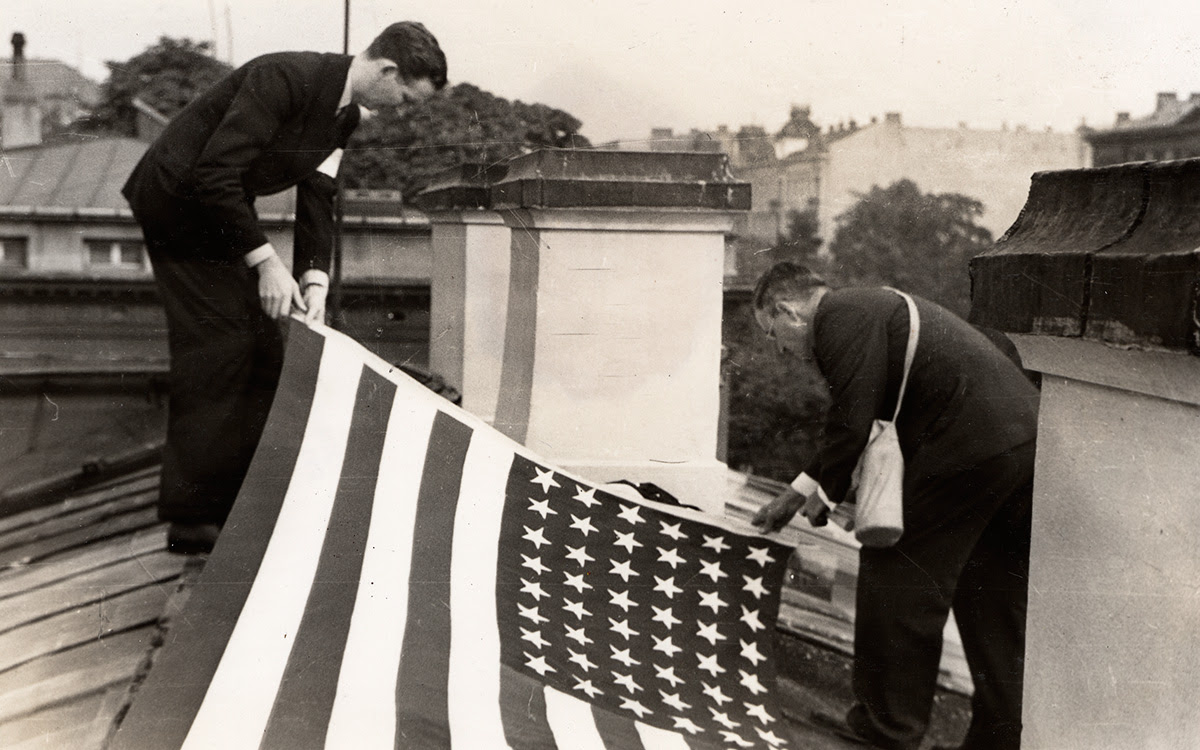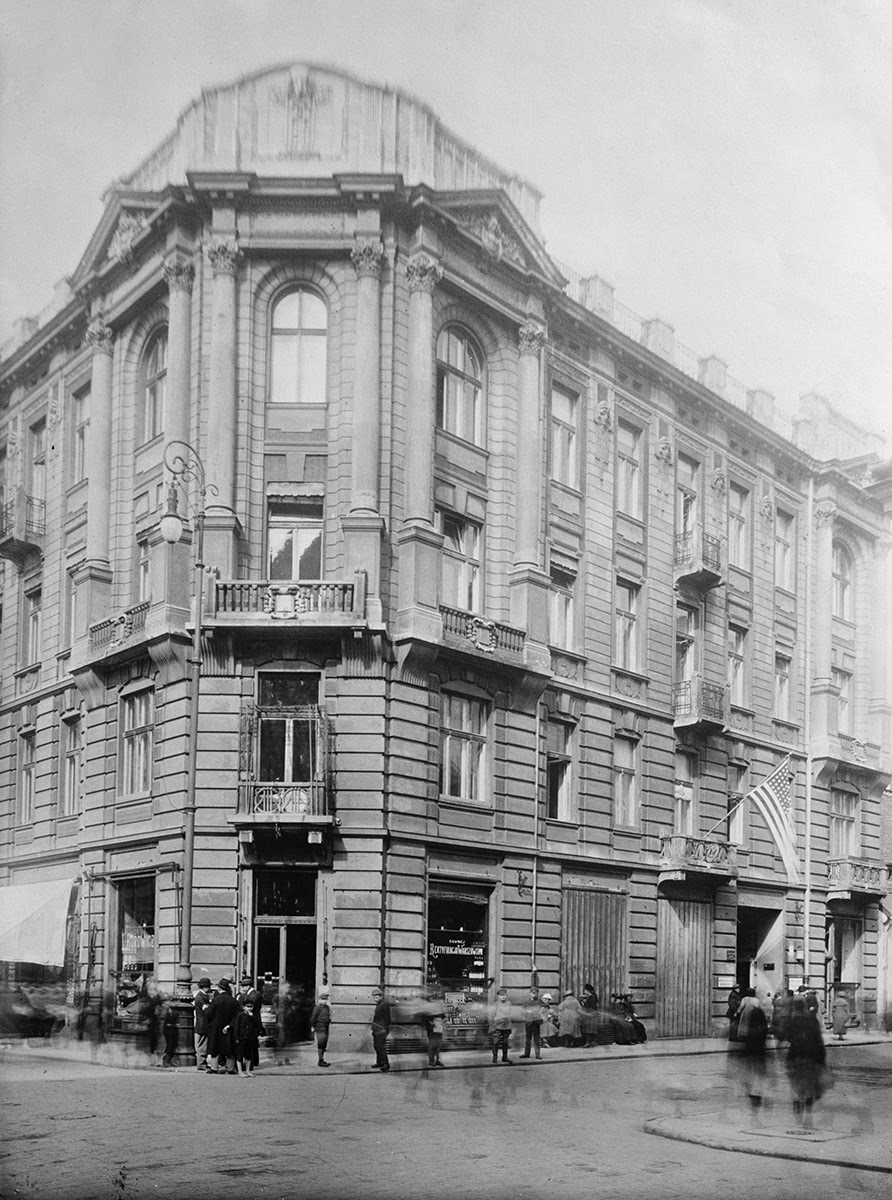BY RAY WALSER

Staff members drape a large American flag over the roof of the embassy in Warsaw in anticipation of German air attacks. U.S. Holocaust Memorial Museum / Julien Bryan Archive

U.S. Consulate General Warsaw on Sept. 1, 1939. U.S. Library of Congress
Warsaw, Sept. 1, 1939, 5:30 a.m. The shriek of air raid sirens awakens Ambassador Anthony “Tony” J. Drexel Biddle Jr. Troubled by heightened German-Polish tensions, Adolf Hitler’s demands for territorial rectifications and the recent mobilization of the Polish Army, Biddle calls the duty officer at the Polish Foreign Ministry.
Is this an attack? The answer: Yes, there are numerous reports of German incursions onto Polish soil. Electing to telephone rather than cable flash news, Biddle manages to reach Ambassador William C. Bullitt in Paris. Bullitt, in turn, places a trans-Atlantic call.
2:55 a.m., Washington time. A sleeping President Franklin Roosevelt awakens to Bullitt’s call. After weeks of tension, a war of nerves is now a shooting war. The president alerts Secretary of State Cordell Hull and other senior officials. In the pre-dawn hours, lights suddenly begin to burn at the State Department. Twenty years after the peace settlement of Versailles, Europe again plunges into general war.
The German attack does not catch Ambassador Biddle or the department entirely by surprise. In March 1939 the department had…
Read more at:
